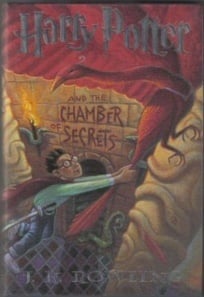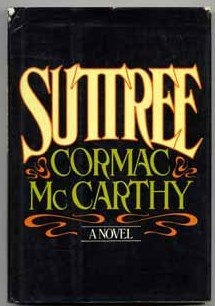“No one in this world,” wrote H.L. Mencken in 1926, “has ever lost money by underestimating the intelligence of the great masses.” This dictum may reek of an under-appreciated artist’s elitist disappointment, but there is perhaps some truth to it. Surely today, if you would like to make money, you are better off making a superhero movie than writing the next Mrs. Dalloway. It is risky, in the end, to be a genius. It is much safer to cater to the general tastes of a people than to be original, which can be alienating and inaccessible to the audience of one’s own time. In the world of creativity, the maverick risks being a true starving artist: although praised in death, she is spurned in life.
Below, we’ve compiled a list of poor authors who were able to write great work in times of financial scarcity.
J.K. Rowling
 Writer or not, there are few rags to riches stories of recent memory as inspiring as J.K. Rowling’s. By now, Rowling’s transformation from welfare-recipient to the world’s wealthiest writer is well known. Rowling’s marriage had fallen apart, making her a single mother, jobless and alienated. She dealt with depression during this difficult time, and lived in a mice-infested flat in Edinburgh. She wrote what would become Harry Potter and the Philosopher’s Stone anywhere she was and anytime she could get her daughter to sleep. This book was sold for an advance of ten thousand pounds, a slow but promising start for the author whose current net worth goes well into nine digits.
Writer or not, there are few rags to riches stories of recent memory as inspiring as J.K. Rowling’s. By now, Rowling’s transformation from welfare-recipient to the world’s wealthiest writer is well known. Rowling’s marriage had fallen apart, making her a single mother, jobless and alienated. She dealt with depression during this difficult time, and lived in a mice-infested flat in Edinburgh. She wrote what would become Harry Potter and the Philosopher’s Stone anywhere she was and anytime she could get her daughter to sleep. This book was sold for an advance of ten thousand pounds, a slow but promising start for the author whose current net worth goes well into nine digits.
Henry Miller
Few people have so fully embraced the life of the Parisian bohemian as Henry Miller. Miller spent the 1930s in the French capital, leading a panivorous writer’s life and subsisting on whatever was just enough to keep him at his typewriter. Now Miller may have sacrificed many comforts for his work, but this poor author was far from an ascetic. His infamous novels Tropic of Cancer and Tropic of Capricorn were banned in the US and Britain for obscenity. They chronicled the sexual escapades of the narrator, and are a panegyric to the virtues of sensuality, passion, and experience. Miller’s luck began to turn around when he found benefactors who believed in his work, the most notable of them being writer and his lover Anais Nin.
Herman Melville
Like the title of one of his stories, Melville was something of a “happy failure.” Despite writing what is arguably the best prose to come out of the United States, and despite writing Moby Dick, that indispensable and magical American classic, Melville always had money issues. He even tried writing lesser works in the hope they might sell. He wrote in 1849 to a friend about his new books: “They are two jobs, which I have done for money--being forced to it, as other men are to sawing wood.” Yet writing never earned him enough to support his family of a wife and four kids. Never having the opportunity to write full-time, Melville worked as a customs inspector to gain some semblance of financial stability. Reception caught up with Melville well after his death in the early twentieth century, but it was a tad too late to help the poor author pay the bills.
Winston Churchill
The anatomy of Winston Churchill’s success is a truly puzzling case. He was a poor student in his youth, yet led a country through gruesome war and won the Nobel Prize in Literature. Even though Churchill had constant problems paying the bills, he still wanted to keep appearances as a patrician statesman and charismatic man of high-society. In a true display of his determination, Churchill, after hosting dinner for the country’s notables, would pretend to retire for the night. Instead, he was really going to another room to write, often accompanied by a staff who would help him work into the early morning. He depended dearly on his income from writing, and yet went to great lengths to make it seem like that was not the case.
Hart Crane
Crane’s life is one of the most tragic in American literature. Author of The Bridge and White Buildings, he was a great talent. Still, he struggled with alcoholism, social alienation, and died at the age of thirty, jumping off the side of an ocean liner in the Caribbean. His work and livelihood were thoroughly dependent on the kindness of others. Crane relied heavily on grants, as well as cash and housing from friends and well-wishers. The poet was even saved by his friend Harry Crosby, who paid his fine when Crane fought his waiters over the price of the bill in France.
Cormac McCarthy
 Cormac McCarthy is one of the more mysterious personae in American letters today, and a most intriguing part of his past is his voluntary poverty. Committed to writing and nothing else, McCarthy spent much of his life in dedicated scarcity. He lived off of his first wife’s salary until the marriage dissolved. Despite gaining traction as a respected novelist, McCarthy would turn down lucrative speaking engagements, claiming that everything that needed to be said was already on the page. This meant continued poverty, a condition which got him kicked out of a New Orleans motel charging only $40 a month in rent. McCarthy chronicled some of the the peculiarities of his poor life in the semi-autobiographical novel Suttree, which follows the down-and-out inhabitants of a Tennessee river town.
Cormac McCarthy is one of the more mysterious personae in American letters today, and a most intriguing part of his past is his voluntary poverty. Committed to writing and nothing else, McCarthy spent much of his life in dedicated scarcity. He lived off of his first wife’s salary until the marriage dissolved. Despite gaining traction as a respected novelist, McCarthy would turn down lucrative speaking engagements, claiming that everything that needed to be said was already on the page. This meant continued poverty, a condition which got him kicked out of a New Orleans motel charging only $40 a month in rent. McCarthy chronicled some of the the peculiarities of his poor life in the semi-autobiographical novel Suttree, which follows the down-and-out inhabitants of a Tennessee river town.
Charles Dickens
 Dickens’ impoverished upbringing helped to make him a true champion of the poor and oppressed. When he was a boy, his father was sent to debtor’s prison. As a result, he was forced to quit school and take a job at a shoe blacking factory, working ten hour days and absorbing all the insalubrious conditions of a Victorian factory. Dickens would never quite lose the resentment he had for his father and family for putting him in such a circumstance. In his books, the now-successful Dickens would bring attention to the underclass of London, reminding everyone that behind all the progress of modernity there was a deleterious current of exploitation and misery.
Dickens’ impoverished upbringing helped to make him a true champion of the poor and oppressed. When he was a boy, his father was sent to debtor’s prison. As a result, he was forced to quit school and take a job at a shoe blacking factory, working ten hour days and absorbing all the insalubrious conditions of a Victorian factory. Dickens would never quite lose the resentment he had for his father and family for putting him in such a circumstance. In his books, the now-successful Dickens would bring attention to the underclass of London, reminding everyone that behind all the progress of modernity there was a deleterious current of exploitation and misery.









